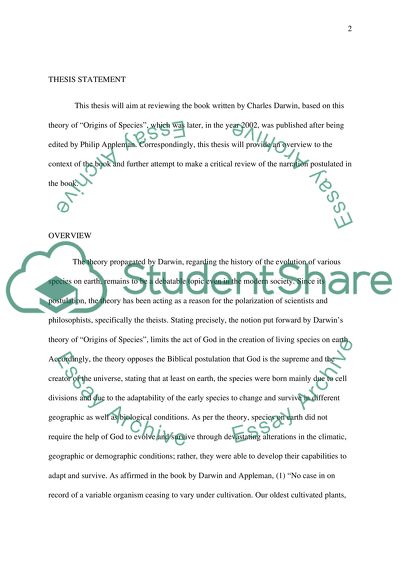Cite this document
(“Darwin: Origin of Species Essay Example | Topics and Well Written Essays - 1500 words”, n.d.)
Retrieved from https://studentshare.org/history/1483154-darwin-origin-of-species
Retrieved from https://studentshare.org/history/1483154-darwin-origin-of-species
(Darwin: Origin of Species Essay Example | Topics and Well Written Essays - 1500 Words)
https://studentshare.org/history/1483154-darwin-origin-of-species.
https://studentshare.org/history/1483154-darwin-origin-of-species.
“Darwin: Origin of Species Essay Example | Topics and Well Written Essays - 1500 Words”, n.d. https://studentshare.org/history/1483154-darwin-origin-of-species.


